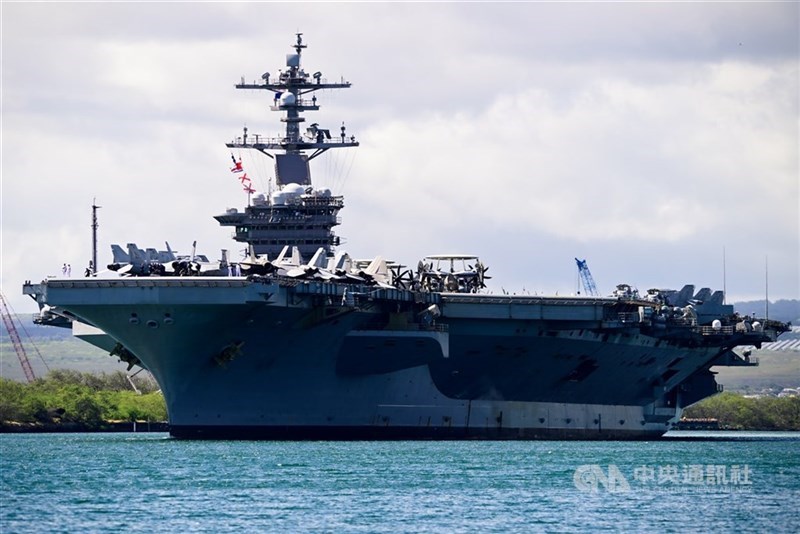Increased U.S. military presence in Indo-Pacific 'deterrence' to China: Analysts

Taipei, April 5 (CNA) The United States' recent military activities in the Indo-Pacific region are aimed at deterring China, two analysts from a Taiwanese military-backed think tank told CNA.
The U.S. military exercises in the Indo-Pacific in recent years are clearly directed at China, said Shu Hsiao-huang (舒孝煌), an associate research fellow at the Institute for National Defense and Security Research (INDSR), a Taipei-based think tank supported by Taiwan's Ministry of National Defense.
The U.S. has developed new military operational concepts in response to China's military expansion and potential military actions in the Indo-Pacific, such as the Marine's Expeditionary Advanced Base Operations (EABO), he said.
According to the Marine Corps website, the EABO involves the employment of naval expeditionary forces from a series of locations ashore or inshore within a contested or potentially contested maritime area in order to conduct sea denial, support sea control, or enable fleet sustainment.
Shu said that in addition to the U.S. forces stationed in Japan, its deployments in South Korea have also seen a "shift" of focus with the aim of countering China.
These developments show that the U.S. strategic deployment is concentrated on responding to "potential threats from China" and potential People's Liberation Army's actions in the Taiwan Strait, and the East and South China seas, he added.
Shu made the comments shortly after U.S. Defense Secretary Pete Hegseth stressed the Pentagon's efforts to "reestablish deterrence" in the Indo-Pacific region while strengthening its cooperation with allies, during his visits to Japan and the Philippines last week.
At the same time, the Washington Post reported at the end of March that a secret interim internal guidance memo signed by Hegseth had called for the U.S. military to prioritize deterring a Chinese takeover of Taiwan.
Speaking with CNA, Su Tzu-yun (蘇紫雲), director of INDSR's division of defense strategy and resources, said U.S. President Donald Trump has placed much less emphasis on Europe after returning to office in January and concentrated American resources in the Indo-Pacific region.
The U.S. military is "preparing for potential Chinese maneuvers in 2027," Su argued, adding Taiwan must also strengthen its own defense capabilities to "offset" the PLA's military advantage.
Su was referring to warnings by some American officials that China aims to be militarily capable of taking Taiwan by force by 2027, but Chinese officials have not said that.
Beijing has never renounced the use of force against Taiwan, although its stated goal is to "peacefully unify" Taiwan.
- Society
Sewer gas poisoning suspected in two Yunlin factory deaths
04/14/2025 08:09 PM - Sports
Hung I-chung becomes first CPBL manager to reach 2,000 games
04/14/2025 07:34 PM - Business
Average year-end bonuses rise to 1.72 months of wages in 2025: DGBAS
04/14/2025 07:28 PM - Society
Yangmingshan fire put out after 5 hours; no injuries reported
04/14/2025 06:08 PM - Business
Taiwan shares edge down with earlier gains eroded amid tariff fears
04/14/2025 04:55 PM